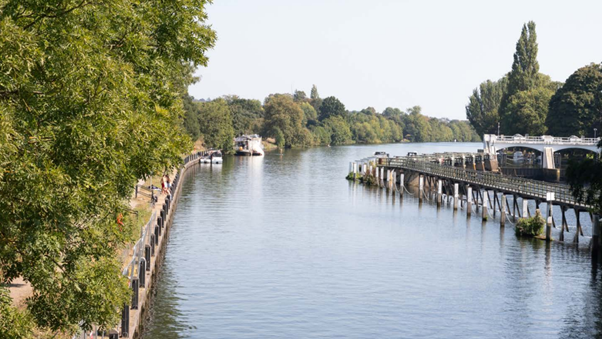The Isle of Wight Council and Southern Water have agreed a new partnership to transform roads across the island in an effort to cut storm overflows and flood risks.
A memorandum of understanding will see both organisations create nature-based sustainable drainage solutions (SuDS) like swales, raingardens and tree pits along roadsides to reduce surface water run-off.
This will help protect homes and businesses from flooding, and also help reduce storm overflows, by slowing the flow of surface water which typically runs straight off roads and into the combined sewer network. This action will stop the sewers from being overloaded, by keeping this water in the ground instead.
It comes as the Isle of Wight Council signed a motion this year to end all sewage discharges into seas and watercourses by 2030.
Under the partnership, Southern Water will invest in the delivery of roadside SuDs, with Isle of Wight Council co-designing, supporting and helping to deliver the schemes. As part of this effort, Southern Water has agreed to fund two new drainage specialists who will work for the council.
Councillor Paul Fuller, Cabinet member for planning, coastal protection and flooding, said: “Everyone on the Island is well aware of the severe impact flooding has on our community, that storm events are becoming more regular and more extreme, and it is important that the council does everything it can to try and minimise these impacts.
“Part of that work is to manage surface water in the best possible way to help reduce the likelihood of flooding in our communities. The delivery of roadside SuDS across the Island will improve the resilience of our drainage and sewer infrastructure, while reaping these broader benefits.”
Keith Herbert, works for Southern Water’s Clean Rivers and Seas Task Force, which is driving work on cutting storm overflows across the region.
He said: “This new partnership is a real gamechanger. We are very excited about getting to work and re-greening roads across the Isle of Wight, creating a natural solution to the issue of water running off roads and ending up in our sewer network.
“We hope this partnership will lead to other councils across the South East to take a similar approach, as we all work together to improve our local environment.”
The memorandum of understanding between the council and Southern Water was signed by Natasha Dix, service director for waste, environment and planning at the Isle of Wight Council, and Nick Mills, director of environment and innovation at Southern Water.
This project will run alongside several other activities being led by Southern Water on the Isle of Wight to combat storm overflows and flood risks, which has prevented around 300 spills each year. These include:
- more than 3,500 slow-drain water butts installed;
- 175 large roofs and seven hectares managed – slowing the flow of rainfall entering the combined sewer system;
- 120 surface water connections identified;
- dozens of optimisation schemes on pumping stations and treatment works;
- more than £10 million spent on improvements.



